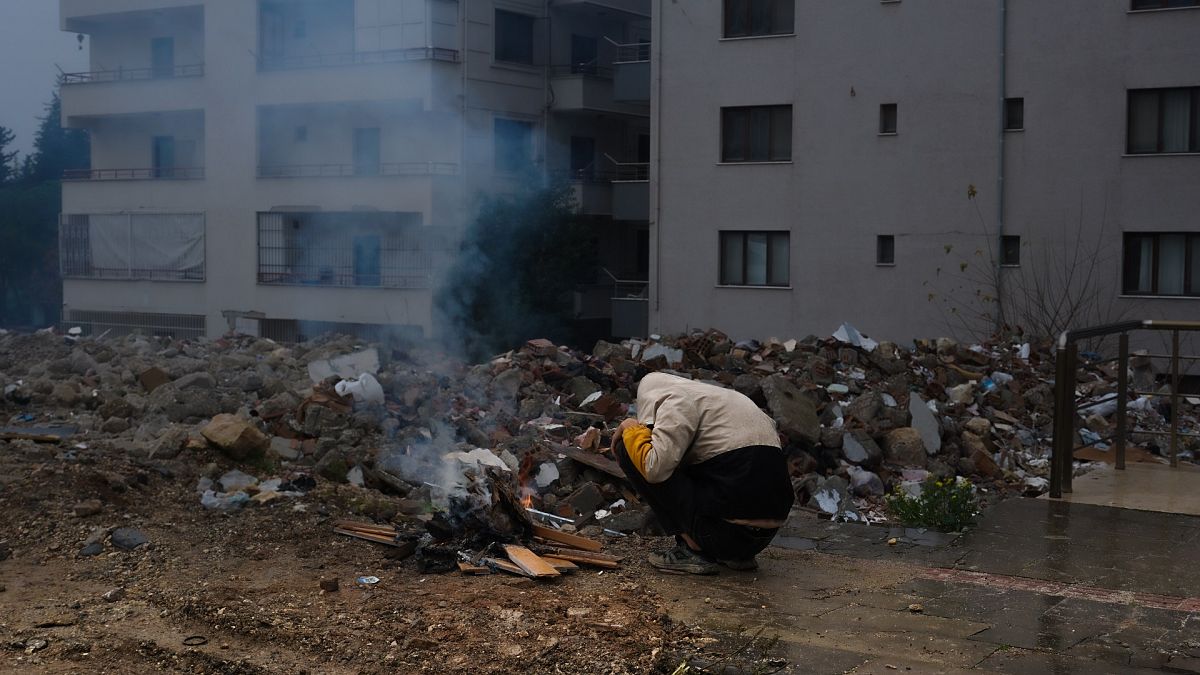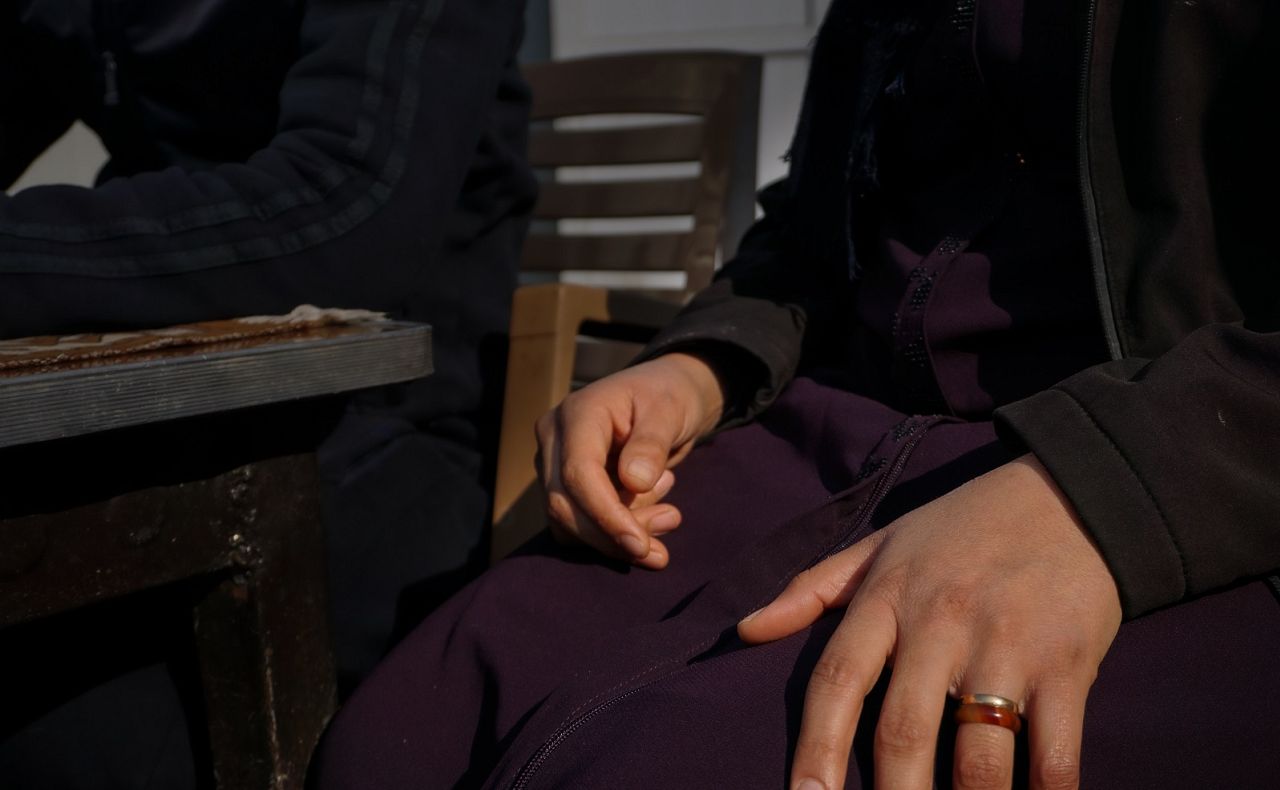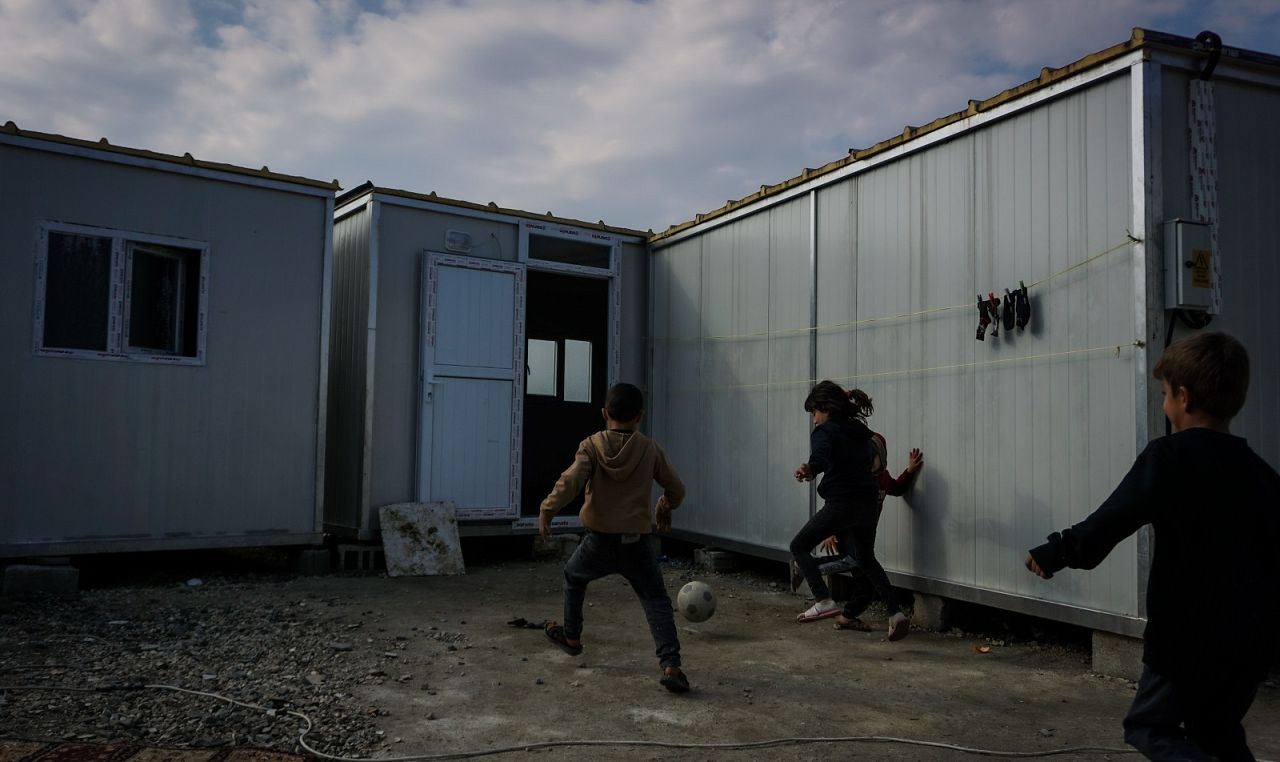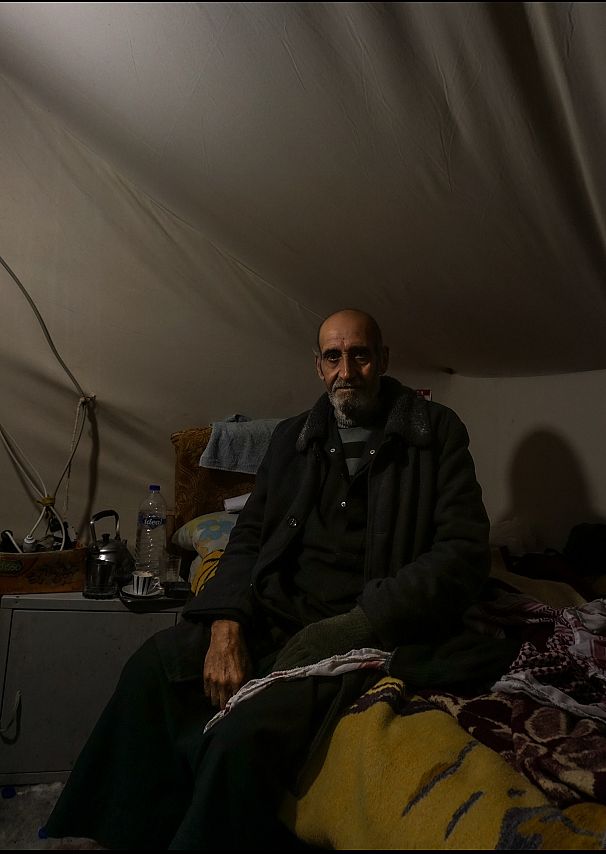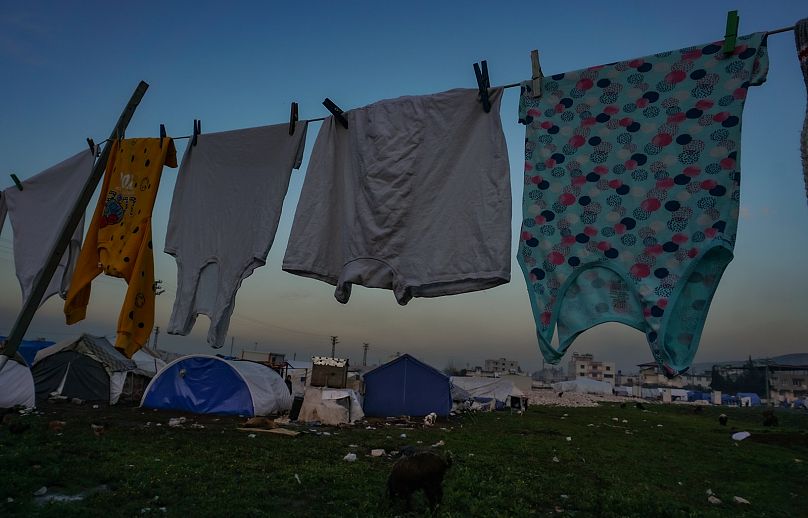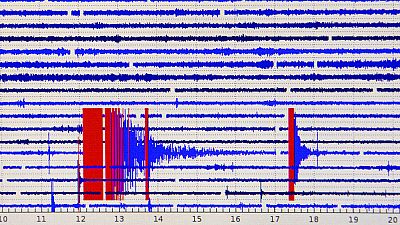In the ruins of Antakya, Turkey's earthquake victims are left to deal with their trauma alone
It's a year since two earthquakes rocked Hatay province in Turkey. In the ruins and camps, survivors are grappling with a mental health crisis alone.
During the birth of one of her daughters in Syria, Amina says she could hear government forces bombing the hospital. This is when she first started having psychological issues.
When Amina arrived in Turkey from Idlib in 2013, her mental health deteriorated further as she watched videos of the war back home. But slowly, she began showing signs of improvement until on February 6, 2023, two earthquakes struck, devastating much of southeastern Turkey.
"We had plans for the next 40 years. In 40 seconds, everything was gone," Amina says, her head resting on her hand while she stares at the ground.
It took just seconds for the ancient city of Antakya to fall. Seconds of destruction will be followed by years of rebuilding.
Today, not much has changed since the quakes, with fruit trees still jutting out of rubble-littered ground. At one house with an orange tree growing over a crumbled courtyard, a father tells me he has lived here since he was a child. The house was a hundred years old.
Beyond the physical destruction, over 50,000 lives were lost and thousands of homes were reduced to nothing; generations of people who called Antakya home - Syrians and Turkish people alike - have been left with deep psychological wounds.
It is a mental health crisis that few, especially the government, seem equipped to handle.
Provision of healthcare criticised
Amina said she contacted the hotline of an NGO asking for psychological support. They said they would call her back. After a psychologist took an initial basic assessment, she heard nothing. That was four months ago.
"We face a lot of gender-based violence issues. Most fathers lost their work, lost their opportunities, they are no longer connected with their sons and daughters anymore and are becoming aggressive," said Mehmet Berkan Gunduz, a psychosocial support team leader at the NGO Support to Life.
Health experts have criticised the government’s preparedness in providing healthcare support following the earthquakes.
"There is a very big gap from the government’s side, especially regarding reproductive health services, secondly regarding elderly, non-communicable diseases, and thirdly infectious diseases are a problem," said Bulent Kilic, who is the chairman of HASUDER, an NGO providing reproductive health services in camps in the Hatay province.
A year on from the disaster, as people begin to process what they experienced, there are concerns amongst support teams that with the government struggling to provide for basic needs, it is difficult to turn their attention to psychological care.
NGOs have filled a vital gap in providing mental health services, but it has taken up to four months before organisations could provide some form of structured psychological support sessions.
Victims unable to talk about their trauma
In the immediate aftermath of the earthquakes, according to one psychological support officer who wished to remain anonymous, the focus was on providing psychological first aid, which included helping people access basic needs.
While people are in shock, still feeling a lack of security, it is not possible to ask them to talk about their trauma.
In one village he visited, a child asked him to play a game in which they re-enacted their experience. During the game, the child talked about the buildings collapsing and the need to save people in them.
In doing so, the child was processing their trauma using their own language. The officer said, in that moment, it was vital he remained a passive participant, ceding control to the child.
But providing this kind of support is complex when conditions in camps are so cramped, making it hard to find safe spaces. Initially, the priority was to give aid, such as food, water, and heaters.
"When we were visiting families, they were saying we don’t need psychological support, give me heaters," said Gunduz.
Mental health workers have faced cultural barriers, with people concerned about being stigmatised for seeking mental health services.
Men in particular have been difficult to reach. With rising levels of aggression and people crammed into small spaces, there has been an increase in domestic violence.
Healthcare workers providing reproductive health services inside camps say they have referred several cases of intermarital rape and incest to NGOs.
Children, who live in close quarters with their parents, sharing a single caravan with a whole family, are forced to witness these issues.
Psychologists warn that children are showing increasing signs of aggression and without privacy and a routine they struggle to adapt to normal life.
Their psychological issues can be compounded by the fact that they are constantly surrounded by reminders of a life-shattering moment, as camps lie near the remnants of Antakya, under which friends, family, and teachers died.
It was raining when the earthquakes struck; the sound of rain still triggers some children today.
Insecurity and loneliness
Hassna left Syria for Turkey in 2013 with two young children on her back. Her husband, she says, was murdered by the Syrian regime and she witnessed people in her village being decapitated and bombed by government forces.
She, too, was beginning to rebuild a life in Turkey before the earthquakes, setting up her own clothes business. A few days before the disaster, she bought two new sewing machines, which now lie under rubble.
Hassna has to care for her mother, pushing her wheelchair across the camp they live in on the outskirts of Antakya, and then having to hold her up every time she needs to go to the toilet.
A constant feeling of insecurity and loneliness hangs over her. She has contacted several NGOs asking for psychological support for her mother, two daughters, and herself, but she says no one has responded. The last time she tried was a month ago.
Psychosocial support is supposed to be available to everyone. The government gave orders early on that priority must be given to families with Turkish citizenship, according to Gunduz.
Syrians have until recently been living in informal tented camps, often sourcing their own facilities such as toilets.
In these cramped conditions finding a safe space to conduct constructive psychological support has been complicated.
Now, some Syrians are being moved to state-run facilities, but conditions in these camps are worse than in Turkish camps.
A team of around fifteen mental health officers might be required to provide support to up to 4,000 Syrians. The women Euronews spoke to say they have not been offered sufficient psychological support.
Rebuilding buildings and lives
The Turkish government has begun trying to rebuild Antakya and the surrounding Hatay province. On the outskirts of Kirikhan, a nearby town, the government has just completed several new apartment buildings.
Recently constructed towers face crumbled hotels and apartment blocks, a shining town on a hill interspersed with the remnants of one no longer standing.
Rubble litters the hills like the aftermath of an avalanche. Around 680,000 homes were lost during the earthquakes.
The arduous process of providing new homes for cities of now homeless people has begun, with the government delivering around 7,000 in Hatay this month and promising a further 75,000 in the next two months.
Long after this task is complete, the mental scars will remain.
As a Syrian, Hassna is unlikely to receive one of these new homes for a long time, if ever. But she has already begun looking for a future.
She’s started studying to complete her ninth grade of school, something she was not able to do when she was her daughter’s age. It is for them that she holds onto hope.
Hope that next, she will go to university and then become a translator. Some people, like Hassna, are looking for their own ways to heal.
